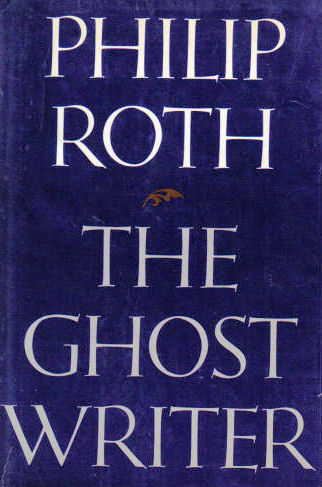Books |
Philip Roth: The Ghost Writer
By
Published: Sep 18, 2013
Category:
Fiction
The first paragraph of “The Ghost Writer,” published in 1979, strikes me as close to perfection:
It was the last daylight hour of a December afternoon more than twenty years ago — I was twenty-three, writing and publishing my first short stories, and like many a Bildungsroman hero before me, already contemplating my own massive Bildungsroman — when I arrived at his hideaway to meet the great man. The clapboard farmhouse was at the end of an unpaved road twelve hundred feet up in the Berkshires, yet the figure who emerged from the study to bestow a ceremonious greeting wore a gabardine suit, a knitted blue tie clipped to a white shirt by an unadorned silver clasp, and well-brushed ministerial black shoes that made me think of him stepping down from a shoeshine stand rather than from the high altar of art. Before I had composure enough to notice the commanding, autocratic angle at which he held his chin, or the regal, meticulous, rather dainty care he took to arrange his clothes before sitting — to notice anything, really, other than that I had miraculously made it from my unliterary origins to here, to him — my impression was that E. I. Lonoff looked more like the local superintendent of schools than the region’s most original storyteller since Melville and Hawthorne.
That paragraph is packed with information, but the information doesn’t get in the way of the voice — in just 210 words, I feel I know the 23-year-old Zuckerman. Whatever his flaws may be, I feel he is a keen observer, a trustworthy narrator, and, not least, a funny guy. And look at the end of the paragraph. Did that description lead you to think you were reading about a great writer? No. So the last few works take you by surprise, bring you up short, punctuate the long sentences that precede them. [To buy the paperback from Amazon, click here. For the Kindle edition, click here.]
Tight. Drum-tight. And that’s how the book continues. Lonoff, an urban Jew, has spent the last 25 years in the woods. He and his patrician Yankee wife have raised a family, but now they’re alone, she in her solitude, he with his work. And what work! As he tells Zuckerman:
"I turn sentences around. That’s my life. I write a sentence and then I turn it around. Then I look at it and I turn it around again. Then I have lunch. Then I come back in and write another sentence. . . . Then I read the two sentences over and turn them both around. Then I lie down on my sofa and think. Then I get up and throw them out and start from the beginning. And if I knock off from this routine for as long as a day, I’m frantic with boredom and a sense of waste. . . . And I ask myself, Why is there no way but this for me to fill my hours?"
Oops. They’re not alone. There is a beautiful young woman, Amy Bellette, staying with them. She’s on a literary mission, Zuckerman is told. As is Zuckerman. He’s written a few, high-regarded short stories, and now he’s written one so scandalous his father has taken it to a judge noted for his intellect. The judge has questions for Nathan, among them: "Can you honestly say that there is anything in your short story that would not warm the heart of a Julius Streicher or a Joseph Goebbels?”
Nathan now needs a mentor, a literary figure whose approval would silence his family’s anxiety. A Norman Mailer figure with a fabulous girlfriend (“After graduating from Sarah Lawrence, she had evidently continued her education at Elizabeth Arden and Henri Bendel”) loves his story, but is too wrapped up in his ego to help. So Nathan’s best hope is Lonoff.
Conversation by the fireplace. Dinner with Lonoff and the wife. Revelations about Amy. Late night in the country. A climax at breakfast. And out.
“The Ghost Writer” is a title that works on several levels, and so does the book. If you’re Jewish, the back-and-forth may seem very familiar; if you’re not, you’re in for some eye-opening insights about literary Jews. (Or, perhaps, literary Jews l950-1979.) You’ll see, close-up, the distance between reputation and reality. And you’ll be treated to a psychology lesson about four people that is nothing but smart.
Four people. A house. One night. Is this a book? For me, a delight. The New York Times critic also loved it, but he ended his review with a complaint: “I wish the book had been half again as long.” No. No, no, no, no, no.


